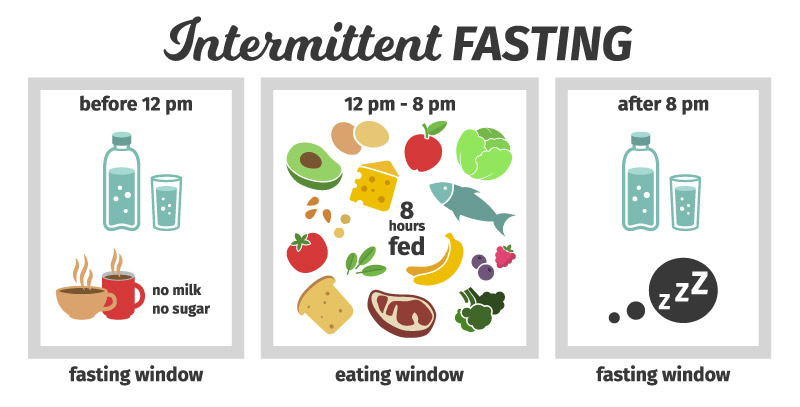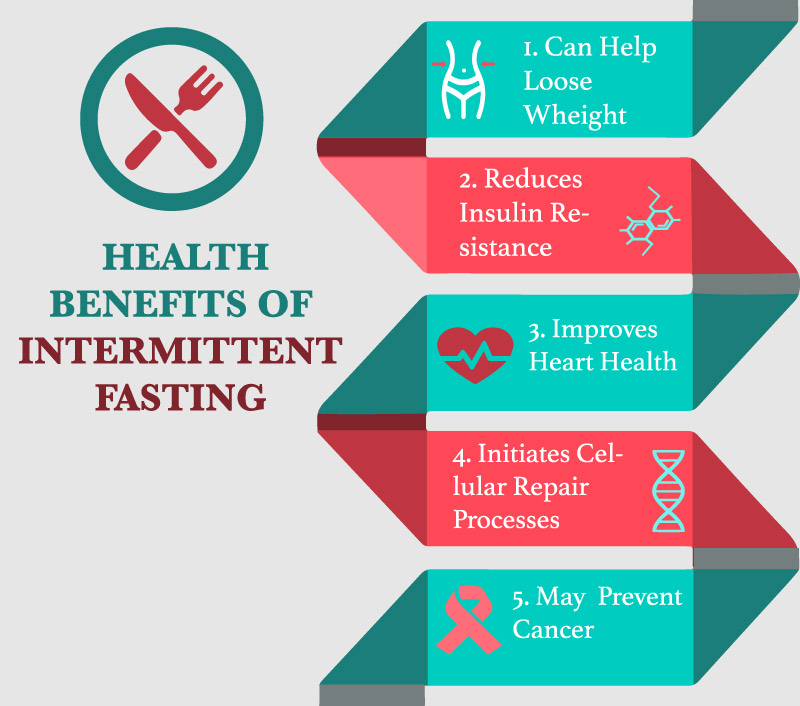Intermittent fasting (IF) simply means varying time schedules of eating and fasting. There are many different types of IF so it can easily be flexed to each individual’s schedule or preference.
During IF the body utilizes stored fat for energy so the practice can help people lose weight; however, the benefits of IF exceed far beyond weight loss. IF also helps lower insulin levels and improve blood sugars, so Type 2 diabetics are often able to decrease (or even discontinue) their medicine when they incorporate IF.
Time-restricted eating is a great place to start.

There are many different types of IF but for starters I recommend time-restricted eating. With this form of IF you simply narrow your window of eating in a day, preferably to eight hours or less.
While intermittent fasting has many proven benefits, it should not be attempted by people who are underweight or have an eating disorder, those who are under the age of 18, or women who are pregnant or breastfeeding. Intermittent fasting can be dangerous in some individuals, especially diabetics on certain medications that would require dose adjustments when fasting. Before implementing any new diet or lifestyle changes, discuss them with your medical provider.

There are many benefits to intermittent fasting as well as types of IF that you can continue to learn about or if you prefer you can make an appointment to see me at Whole Heart Family Medicine and I will be happy to individually tailor a plan to best suit your needs.



